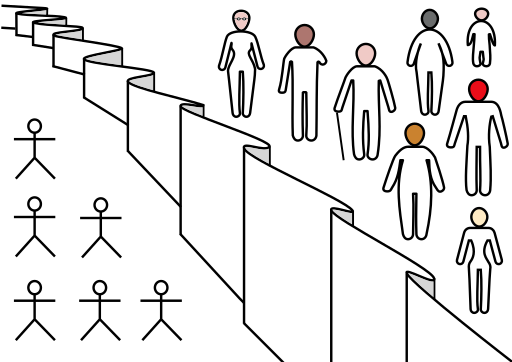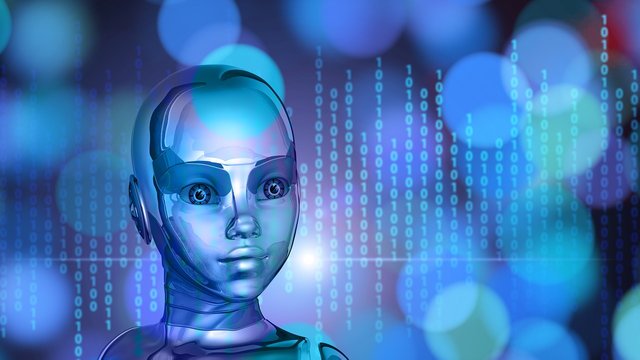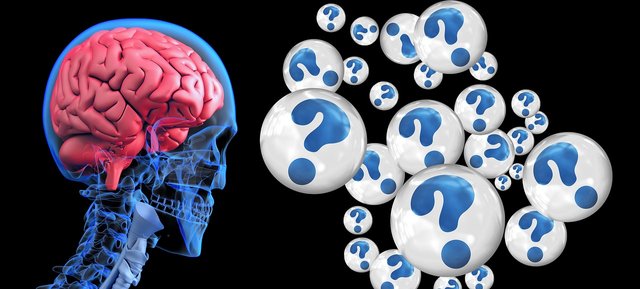Quantified Self, The Reputation Economy, and AI enabled Self Governance
Quantified Self, The Reputation Economy, and AI enabled Self Governance
In my previous post titled: "The concepts of reputational risk and feedback in decentralized governance" I discussed concepts. The main concepts were reputational risk and feedback in the context of decentralized governance. In introducing these concepts I discussed how I arrived at my conclusions, my pragmatism, my ideals, and some of the deeper philosophical concepts behind some of the solutions I provided. One of the concepts I introduced was the idea of applied quantatative analysis of big data on the network level. This applied quantatative analysis was presented in that blogpost in a way which was more geared toward "governance" but without actually describing how this technology can improve governance in practice. This post will be more on the practical use cases and how these new abilities can be used to improve people's lives.
Measurement is a necessary step of self governance
What do I mean when I use the term self governance? In this context we can think of self governance as self control. How can you control yourself if you do not have a means of measuring your current state? To provide the most basic example of what I mean, imagine the scenario illustrated below:
Alice measures herself with a scale
You are Alice. You're trying to control your weight. The first thing you'll do is look in a mirror. The mirror shows you a visual of your body and from this you may have an intuitive sense that you want to lose or gain more weight but what does weight mean? Weight is nothing more than a number on a scale, and so you purchase a scale so that you can track this number.
In the beginning, the most simple scale is only going to track your total body weight. This kind of scale tells you nothing about your body composition. So you don't really know how much of that weight is bone, how much is lean body mass, how much is water, how much is muscle or how much is fat. As technology evolves over time these scales continue to getter better as sensors improve. As the technology improves you can go from just one number (weight) to many numbers (body composition).
Let's assume the main goal of Alice throughout her life is self improvement. She knows what her goal is, but her scale isn't intelligent enough to know this. The scale only tells her a number, and this number does not track anything health related. If Alice merely wants to lose weight (make that number on the scale go down) all she has to do is stop eating. If Alice does not eat then over weeks, months, that number will go down and this will tell her nothing about the status of her health.
This would indicate that just measuring one number (weight) is not enough for Alice to remain on a trajectory of progress (self improvement). In order for Alice to self improve over time Alice must track her own metrics in a meticulous fashion similar to how a corporation or business might do accounting. So let's again go back to the scale and assume now Alice is tracking body composition? The human body works on a principle of homeostasis, and this means that the body prefers to stay in the same state and maintain that state. The human body seeks to keep everything in a very tight range and this is measurable by looking at the blood, where blood sugar, blood pressure, sodium, potassium, and many other aspects are in an extremely tight range.
When Alice upgrades her scale to track body composition now she can see herself even better than the mirror and traditional weight scale. Now she can see how much fat, how much muscle, how much water, how much bone, make up her body. Now Alice can apply her deductive reasoning to figure out that when she eats more calories not only does her total weight go up, but her body fat is going up as well. She may also figure out that if she measures her calorie input she can have control over that number. This here represents a feedback loop between Alice and the machine which can help Alice to make adjustments.
Quality calories in vs calories out
The video above discusses the topic of calories. It's not enough for Alice to merely track her calories in vs calories out. In a business a dollar isn't just a dollar if it negatively impacts the reputation of the business. In the human body a calorie isn't just a calorie, because the nutritional density per meal does matter and this means getting the most nutrition per calorie is what counts. Nutrition per calorie is what alice would want to track as this would indicate the quality of the calories she takes in rather than just the amount.
In order for a human being to control their body composition on the level of weight then they must track their calories. This means Alice would have to purchase another scale (a nutritional scale) allowing her to weigh every caloric meal she puts into her body. This would allow Alice to have an additional lever of control over her body which put in another way can be taken to mean it allows Alice to better govern her own body. This nutritional scale would allow Alice to track how many calories, how many macro nutrients, and micronutrients, are in each meal, and just like a business she can either aim to be in a state of growth or put herself in a deficit which would according to the laws of physics eventually result in weight loss.
This is not enough for Alice to be healthy. Alice has to track as much of herself as she can, using the latest sensors, whether it be the DEXA scan, the blood test, the urine test, the saliva, etc. The more Alice knows herself, her genetics, her blood test results, her numbers, the more quantifiable she becomes. The more quantifiable Alice becomes, the more easily Alice can put her digital self into a form which AI can work with.
We are stuck in a state of involuntary ignorance

By Philosophyink [CC BY-SA 4.0 (https://creativecommons.org/licenses/by-sa/4.0)], from Wikimedia Commons
What do I mean by involuntary ignorance? In the Alice measures herself with a scale analogy we have to think of the scale in the abstract. It represents the ability of Alice to track her own metrics. This gives Alice access to Alice in her digital form, as numbers on the scale, and these numbers are important. The goal of Alice to stay on a track of self improvement (because she is trying to be rational) is thwarted by her inability to get an accurate measurement of the state of her own body. She simply cannot become her best self if she doesn't know herself on the level of the relevant numbers required. She may even have these numbers, but if she lacks the ability to interpret these numbers then again she may be kept in a state of ignorance and this could prevent her from becoming her best self.
Alice represents all of us. It is true that professional athletes with coaches may know how to get into peak condition. This analogy is not to be taken in the literal sense, but in the abstract sense the truth is we have all sorts of metrics, of digital representations of our current self, past self, yet we just do not have access to this data or if we do then it's not in a format which is useful to us. The data is being collected in a lot of instances but in centralized places, often not in a way which we can have it analyzed in a useful way without specialized applications or the help of experts.
The Self Quantified in a Reputation Economy with AI

In the decentralized governance I envision, each of us is allowed (and encouraged) to become our best self. The first step to decentralized governance is improved self governance capacity. A reputation economy with it's ratings and feedback is useful but there are other even more important components. When each of us has the ability to track our own metrics, whether it be metrics of our blogs on Steemit, or our body composition, or our health scores, all of these scores are important to anyone who wants to improve. The hours of sleep you get a night, the nutrition you get, the body composition and how it's changing from week to week, the blood test results, all of these scores in a decentralized exocortex should be analyzed.
When I blog about "Exocortex" I'm not talking only about blockchain or crypto. I'm not just talking about the small picture. The big picture is that having a decentralized exocortex can allow Alice to better measure and analyze herself (primarily), and to also do this with an understanding of her position on the human spectrum. So for example if there is a such thing as a healthy range for fitness then this data will also be on the network because as science improves the knowledge of the global mind which is the exocortex also increases. This means Alice would not need to know what that range is, but merely to capture her own numbers and let the network analyze it to return feedback to her.
This of course goes far beyond Alice regulating her physical fitness. This exocortex would allow Alice to apply these same kinds of metrics to measure her morality. The ability to measure morality might seem controversial but the idea of a moral analysis isn't as insane as it might sound. If Alice inputs her values, and let's for example assume according to her values she is given the feedback to try a vegan diet, then not only would the exocortex allow Alice to more effectively find out that veganism is aligned with her values, but the exocortex would help her to make the transition by identifying contradictions, by revealing to her that her current eating habits do not align with her values.
How could this be taken to the next step? If Alice is made aware that she's not following her own morality in a manner which helps her to become the best version of herself then just like how the scale can provide a number which can motivate Alice to lose weight, the exocortex can also produce a number which can reveal to Alice how effectively she is following her own values in her shopping habits. So we can see here that the more data the exocortex has access to, the more quantitative analysis can be done on that data, the more feedback Alice can receive (feedback loop), and the adjustments Alice can make either to her values or to her habits so as to align her habits with her values.
So in the above example we can see that the ability of Alice to be moral, to govern herself, is directly related to if not limited by the ability of Alice to do quantitative analysis of herself. In other words, quantified Alice is necessary to allow for Alice to measure her moral trajectory to determine if she's actually living in accordance to her values.
Quantified Alice and the Reputation Economy
So now we have an idea that Alice can be quantified. What exactly does it mean if Alice can be quantified? Well it means in the context of a reputation economy that a score can be generated which would produce a number. This number or score could represent how effectively Alice adheres to her own values. For example if her shopping habits are part of the data which gets analyzed then as Alice adjusts her shopping habits to align with her moral values then this could actually be represented as part of her score. So just as a credit score can be created by a formula based on criteria like amounts owed, payment history, length of credit history and so on, we can derive a formula which can produce a number based on criteria to represent a moral adherence rate.
If Alice has a moral adherence rate, and Bob also has a moral adherence rate, then they may decide only to do business with people who have a moral adherence rate above some standard rate. Just like that, people who are following their own rules (and it can be proven by their track record), are able to be matched by a matching algorithm on the basis of meeting a minimum threshold rate. If we are talking about bots, or "agents", then if each agent has many different scores associated with it, then any agent may filter any agent based on the available scores. This would allow for very precise searches.
The Moral Search Engine concept
Now we have at least some idea of how powerful the idea of self quantified + reputation economy can be, we have the question of how can Alice get advice? She wants to be the best person she can be but she's not always going to be able to find that answer in a book, or text, or science journal. Alice may require moral advice from an adviser which has similar values as herself and who meets the qualifications she is looking for. The interesting this is this adviser can be any agent in the network (intelligent person or intelligent machine) which meets the criteria.
Suppose Alice wants to know what she should do to handle a particular delicate situation? She may ask her question to the network in a format which the network will accept. The query could contain within it the search criteria such as (must have a moral adherence rate above x), or (must share my values at a rate of 80% or above). The answers from the network would then only return to Alice from the agents which met the criteria, and which were matched with Alice by the algorithm. This means bots could supply some parts of the answer if it's something AI can analyze and crunch, while humans can provide other parts, as all would be able to provide their answer or parts of the answer and everyone who asked a similar question can see it.
What does it mean? It means Alice can now conduct a moral search. This idea of course needs some working out, as there is likely a lot more complicated issues (technical) before it can happen, but if a decentralized search engine is shown to be possible then a decentralized moral search engine is also possible with some additions. There are problems such as the risk of Sybil attack on the reputation system, and a system such as this would have to integrate with banks in order to capture shopping data, but it is at least theoretically possible that banking information could be captured, analyzed, and the score shared in a verifiable way with the pseudonym used by Alice.
In order to do a moral search there has to be first a wisdom engine. A wisdom engine is the core function of an exocortex. It is also required that secure multi-party computation, homomorphic encryption, and other advanced cryptographic solutions are worked out. In my opinion these solutions will be worked out sooner or later given there is enough will and resources to fund doing it.
Summary
- The goal of quantified self is to help us to know ourselves by numerical analysis.
- The goal of a reputation economy is to help us figure out who we can trust, how we can trust them, and to know each other.
- The role of AI is to solve the sort of problems humans are not good at solving (such as data processing and automated analysis)
- The role of self governance in a decentralized governance context is based on a bottom up model where good governance starts at the level of the individual. To allow individuals to better govern themselves is to reduce the need for centralized/external mechanisms to accomplish the same outcomes.
- Involuntary ignorance is a problem we all face due to lack of self knowledge and lack of understanding of others, and of situations. This is often due to the inability of the human brain to process the massive amounts of information which has to be processed and analyzed in order to allow someone to arrive at good decisions.
- The role of an exocortex is to act primarily as a wisdom engine for humanity, by allowing any individual to scale up their ability to process situations, information, to analyze themselves, the world, etc.
- Garbage in = garbage out, whether it's information, or calories. Quality is important if the goal is self improvement over time. Only by measuring can we have a way to know the quality of what we consume and filter or seek more of it.
- Improving decentralized governance begins with improving the capacity of the individual to improve themselves. Helping to put the members on the right track on a personal level is what provides a foundation for improving governance at scale. If the individual members are not improving in ability to be moral, to make decisions, to be wise, then whatever governance mechanisms they produce for the whole network is limited by that individual bottleneck.
- Better self governance can evolve bottom up into better governance on every and any platform. If we are improving our ability to monitor ourselves, measure ourselves, improve ourselves, then it will apply to all areas of society, whether traditional or cryptospace.
References
Self monitoring, Dramaturgy, Microsociology, and Morality
The concepts of reputational risk and feedback in decentralized governance


Wow this is a really great article, glad I stumbled across it.
I'm getting quite into some Quantified Self methods for knowing myself better and improving some things I haven't been happy with for a while.
One of the latest things I started doing is pushing a custom button on my phone, fitness tracker or smart watch when I feel a craving or actionable thought to get some fast food. I have been pretty lazy with that for the last 4 years, since I had enough money to do it basically, but it's not a good habit.
I found it hard to break the habit but since doing this I can hold myself accountable (literally, each trigger creates a row in a spreadsheet) and review the patterns of the craving. I'm finding that it helps me remember my goal and I'm slowly replacing the bad habit with a moment of introspection.
I'm doing a lot of other things, I'm going be writing about them more and more, but I think it's useful.
The idea of an Exocortex is very interesting and it hadn't occurred to me before that morals could a vector in a self quantified, that's a lot of food for thought.
What about the privacy and external control (loss of self sovereignty) implications? Maybe you've covered this elsewhere, but just going on what you've got here it appears that you're not interested in this question. Why is a forgone conclusion for you that people will want to compare a moral metric when, for example, doing business? It's a short step from that to the kind of dytopian control state we see in China right now?
What we see is that even if something is optional (say it's your choice whether or not to disclose your own moral metric) it becomes mandatory in a regulated business ecosystem. Case in point, try getting a mortgage without disclosing your private financial history.
I see the sense in us all wanting to know about other people's morals, in the sense that we actively already spend a lot of time trying to find it out and so on, but just because you want to know something about someone else or because it's useful, that doesn't make it something you should be allowed to know.
To listen to the audio version of this article click on the play image.

Brought to you by @tts. If you find it useful please consider upvote this reply.
Highly rEsteemed!
thank you for information. very good post
Well, if one wants to live a machinelike life, then your suggestions would make sense.
But you never can define quality which is something humans value a lot. The very fact that quality cannot be measured makes it fascinating. It's the same with everything else one cannot define or test. That's what makes life exciting.
I don't want to have explained every bit. I prefer to have not everything under control. Imperfection and uncertainty is a reality. The sugar & spice in life is to find a good balance between certainty and uncertainty, quantity & quality.
I dislike this envision and I wouldn't want to have it. It's highly imbalanced from my point of view.
Thought provoking article, thanks.
Your Post Has Been Featured on @Resteemable!
Feature any Steemit post using resteemit.com!
How It Works:
1. Take Any Steemit URL
2. Erase
https://3. Type
reGet Featured Instantly & Featured Posts are voted every 2.4hrs
Join the Curation Team Here | Vote Resteemable for Witness